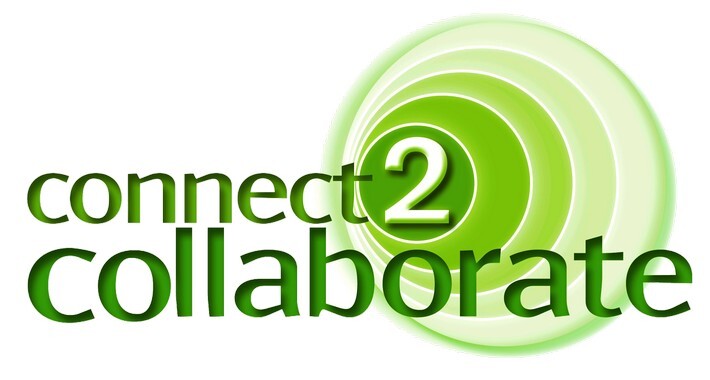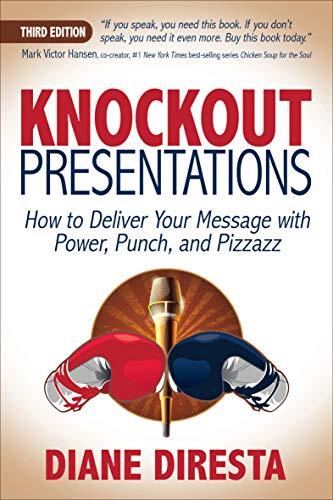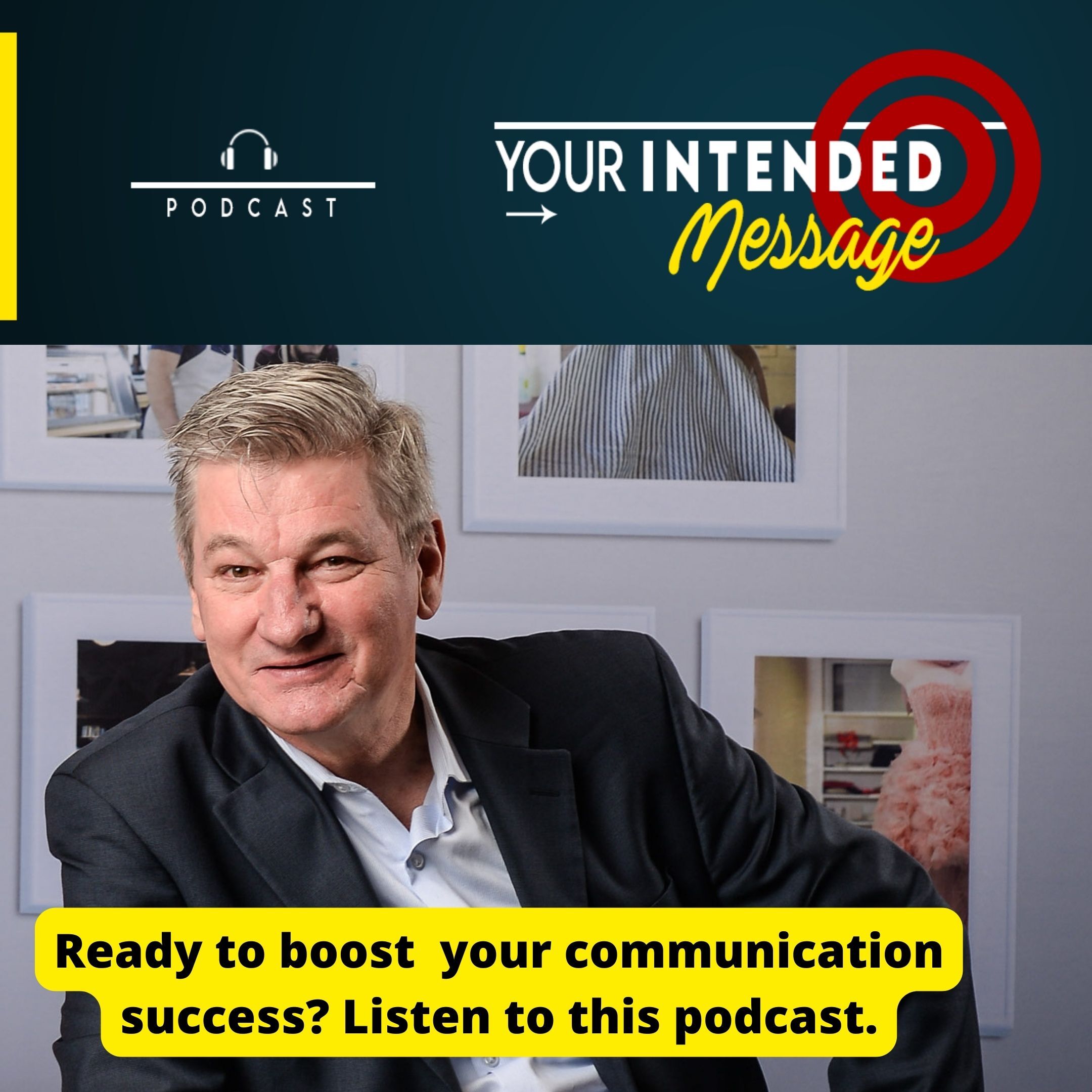
17.2K
Downloads
291
Episodes
The podcast about Effective Communication in Business
Better communication skills will advance your career and business. Are you ready to enhance your understanding and results from better communication? Listen and learn how to deliver Your Intended Message.
Are you willing to cross-examine communication from various perspectives? Would you like to deliver your intended message more effectively?
Listen to Your Intended Message to gain a powerful advantage in your ability to convey your message to your audience, team, clients or marketplace.
Learn from the mistakes and success of communication experts from around the world from different scenarios.
The better communicator has the competitive advantage.
Imagine what that means to you when you improve the success of your next conversation, presentation or message.
Your Host - George Torok
https://yourintendedmessage.com/
The podcast about Effective Communication in Business
Better communication skills will advance your career and business. Are you ready to enhance your understanding and results from better communication? Listen and learn how to deliver Your Intended Message.
Are you willing to cross-examine communication from various perspectives? Would you like to deliver your intended message more effectively?
Listen to Your Intended Message to gain a powerful advantage in your ability to convey your message to your audience, team, clients or marketplace.
Learn from the mistakes and success of communication experts from around the world from different scenarios.
The better communicator has the competitive advantage.
Imagine what that means to you when you improve the success of your next conversation, presentation or message.
Your Host - George Torok
Episodes
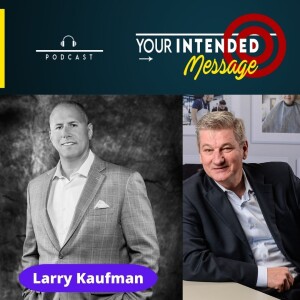
Thursday Jan 26, 2023
Networking, Connecting & Giving: Larry Kaufman
Thursday Jan 26, 2023
Thursday Jan 26, 2023
Build a stronger support system by connecting and giving to others
Build life-changing relationships from college to retirement
Episode 131 (Larry is based in Chicago)
In this conversation with Larry Kaufman we explore:
- Recognizing the value of a strong and supportive network
- How to build stronger connections by giving and open to help others
- Understanding that there are many forms of giving
- Distinguishing your inner circle from your outer circle
- How to start the conversation if you are in career transition
- How to handle a person who is only a taker
About Larry Kaufman:
Larry is the author of the best-selling book, The NCG Factor - a Formula for Building Life-Changing Relationships from College to Retirement.
He is a connector, giver and rainmaker who lives his life to help others.
Larry is the Managing Director for the Midwest Region at Jefferson Wells.
Learn more about Larry at the website www.Kaufman-Larry.com
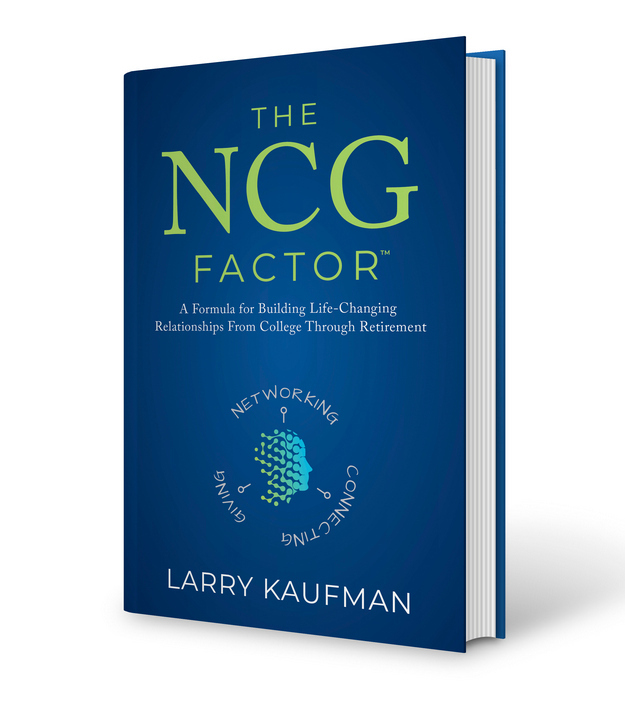
Learn more about the book, on Amazon.
-----
Excerpts from this conversation with Larry Kaufman:
It's really getting to know people, more authentically learning about them, and finding ways to be a connector and a giver.
-----
04:32
So that concept of giving could be as simple as connecting someone to a better source a better resource?
04:41
Right! Because I'm not always the best resource. You know, if you if you needed, you know, someone to fix the electrical in your house. I have to refer you to some people, my network, we're going to be without power.
-----
07:38
It does. I don't give with expectation for the GET. And if you do, you're doing it wrong. However, I've been very giving and it's very fulfilling. I enjoy it.
Like it's it's a big thrill. It's euphoric, when I hear back, Larry, this connection led to a job or helped my charity or did this for me and my family.
But sometimes you will need that favour George, you'll need it for a family member for yourself. And it's those people, you know, those in transition with a job that never built a network, they were working 70 hour work weeks, all sudden, 20 years later, they're out of a job.
They're like, I don't have a network. And they're asking people they don't know for favours and they're like, I don't really know you. And so I can help my children, my spouse, those in my inner circle, outer circle, I have built a great network.
And usually it's not for myself that a call on those favours. It's for other people that need help.
But I have needed favours you have to read the book to read about a favour I called in for my son but it really is important to build relationships because you can't do the Godfather ask for that favour. Someday I'll need that favour.
-----
15:08
So you don't necessarily need to be emailing them every week or every month, if the relationship ended on a strong positive, there's a pretty good chance is still that strong positive?
15:24
Yeah, because I've reached out to people, and I got them a job five years ago and said, Hey, Mary, I need your help, Larry, whatever you want, you know, I'm in my job because of you.
Well, you know, I didn't get them the job. So I could call them later for a favour. But I know when I call them, it's like, hey, we pick up where we left off. And so it's, it's wonderful. It's hard to keep in touch with 1000s of people. But, it happens, it happens naturally, or unexpectedly, and it's good.
-----
Read the rest of this entry »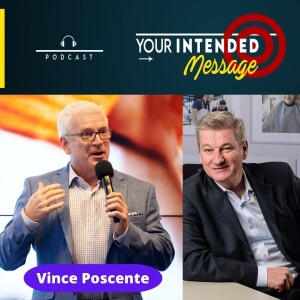
Thursday Jan 19, 2023
Your conscious vs. your subconscious: Vince Poscente
Thursday Jan 19, 2023
Thursday Jan 19, 2023
Is your conscious and subconscious on the same team?
What is the path out of chaos?
Episode 130 (Vince is based in Dallas)
In this conversation with Vince Poscente we explore:
- Recognizing the conflict between your conscious and subconscious
- Why you must resolve that conflict before you can pursue success
- How to face an earthquake in your personal life
- Understanding the role of fear and how you might harness your fears
- Creating your own solution loop to escape the earthquake
- Appreciating the value of an outside perspective
About Vince Poscente:
Vince is a New York Times best selling author of eight books including his latest, The Earthquake.
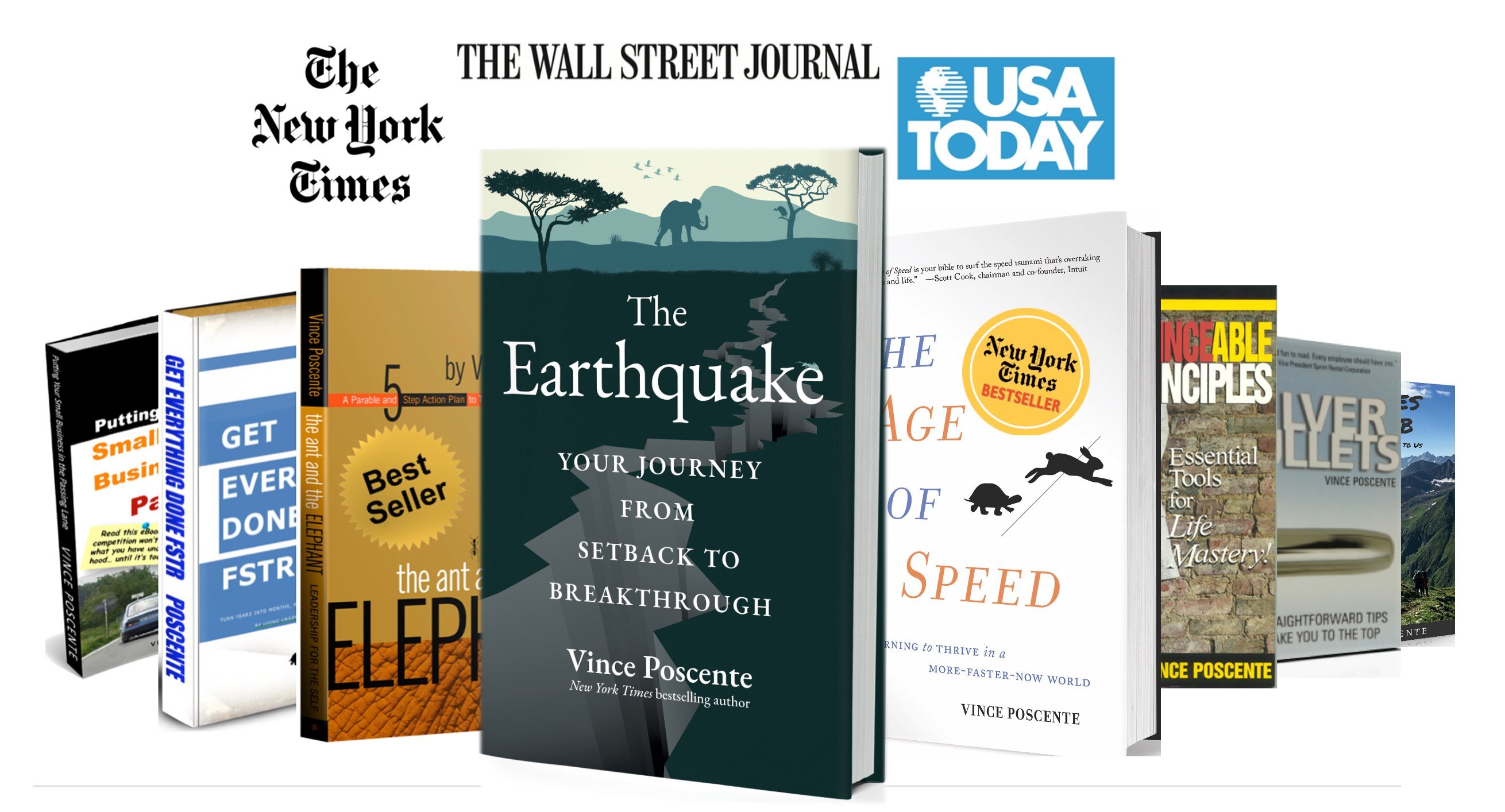
He is president of Board Developer providing sound advice for high growth companies.
You can learn more about Vince Poscente and order his latest book at
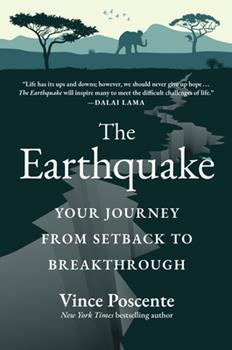
-----
Excerpts from this conversation with Vince Poscente:
There is no linear way out of chaos.
-----
But to answer your question about the earthquake, sometimes we experience a personal earthquake, where we're incapacitated, or we're catatonic or just paralysed by fear of maybe it's bankruptcy, maybe it's divorce, maybe it's a health scare, maybe it's losing a child. I mean, these personal earthquakes that can add absolutely devastate us can create this environment of chaos.
And therefore, how do you get through that chaos? How do you get unparaandlysed and move forward? How do you engage in that way?
And so I'd taken from my own personal financial earthquake, and then turned it into another parable about the ant and the elephant experiencing an earthquake at the very outset of the book, and then how do you get out of this, this chaos? What is this way to get there?
And so that was the challenge of the book.
-----
08:35
Well, here's a fact.
When you run away from fear, it gets larger. When you run towards fear, it gets smaller.
And that is not part of our human experience. Is it like if you run towards something, it gets bigger normally, but fear is insidious. It is. And it's, it's, it's obviously when you get in the middle of it, the reason it gets smaller, you go, Oh, I can handle this, you know.
So those fears, correlate to being able to kind of go against your instinct, which is to run and hide, right? Because there's a part of the brain called the amygdala.
And the amygdala is the oldest part of the brain. And it's quite small about the size of a walnut but that's the gatekeeper for thought, meaning that if you can't get past the amygdala, meaning let's say there's a tiger in the bushes somewhere, right?
The amygdala is going to kick in to do one of three things. It's going to either freeze. That's the first instinct.
The second instinct is to flight to run away. And then the third instinct which would kick you gotta get past these three.
The third one is to fight right so freeze think of a rabbit in the in a field right a little bunny rabbit, and here's a predator, right? What does it do? It first freezes and it just looks around and hopefully you don't see me you don't see me they don't see any. If the predator sees the little bunny, the bunny is going to take off, right?
And then if it's cornered, it's going to rear and then fight, okay, none of those three responses as part of this human condition is to is going to be efficacious, there's going to be very little progress made if you freeze, flight or fight.
So, the hack, by the way, in case you're wondering, let's say you get scared going on stage, speaking to a bunch of people. The reason you've had a bad experience in the past and don't want to do it, again, is that you forgot to breathe, you're not breathing.
And that's trigger for the amygdala, the trigger for the freeze flight or fright flight, or fight freeze flight or fight is to, is to lack of oxygen flow, which is shallow breathing.
So when you're scared, let a scary movie, just notice what your breathing is. It's like it's shallow. It's Oh, no, what's right, and that is triggering the amygdala.
Now it's very safe in a movie theatre to just be there. But if in real life, you're in any of those three states, you're not going to make progress. In fact, the opposite is gonna you're gonna get hurt, something's going to, you know, create a truth in the subconscious mind that this is not a good feeling, but maybe it becomes something like a lack of deserve ability, or there's all sorts of dysfunction that can happen from fear taking hold.
-----
Read the rest of this entry »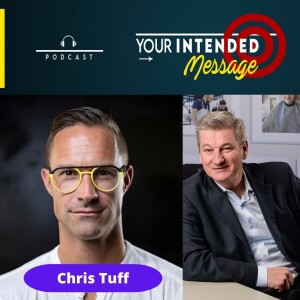
Thursday Jan 12, 2023
Quiet Quitting and the Alternatives: Chris Tuff
Thursday Jan 12, 2023
Thursday Jan 12, 2023
In your job what fires you up? What sucks?
Why both are part of your work and how to find the right balance?
Episode 129 (Chris is based in Atlanta, Georgia)
In this conversation with Chris Tuff we explore:
- What is the right balance of work you love and work that sucks?
- How the different generations view work differently
- Why the grass isn't always greener elsewhere
- What does work flexibility mean and how is it changing?
- The value of more constructive feedback
- How to develop authentic connection with the team
- How to be nice and still fire someone
About Chris Tuff
Chris is the author of "Save Your Asks" and "The Millennial Whisperer".
Through his energy, humor and storytelling, Chris demonstrates how connection can accelerate business growth as well as recruitment and retention.
Learn more about Chris at the website www.ChrisTuff.me
Books by Chris Tuff
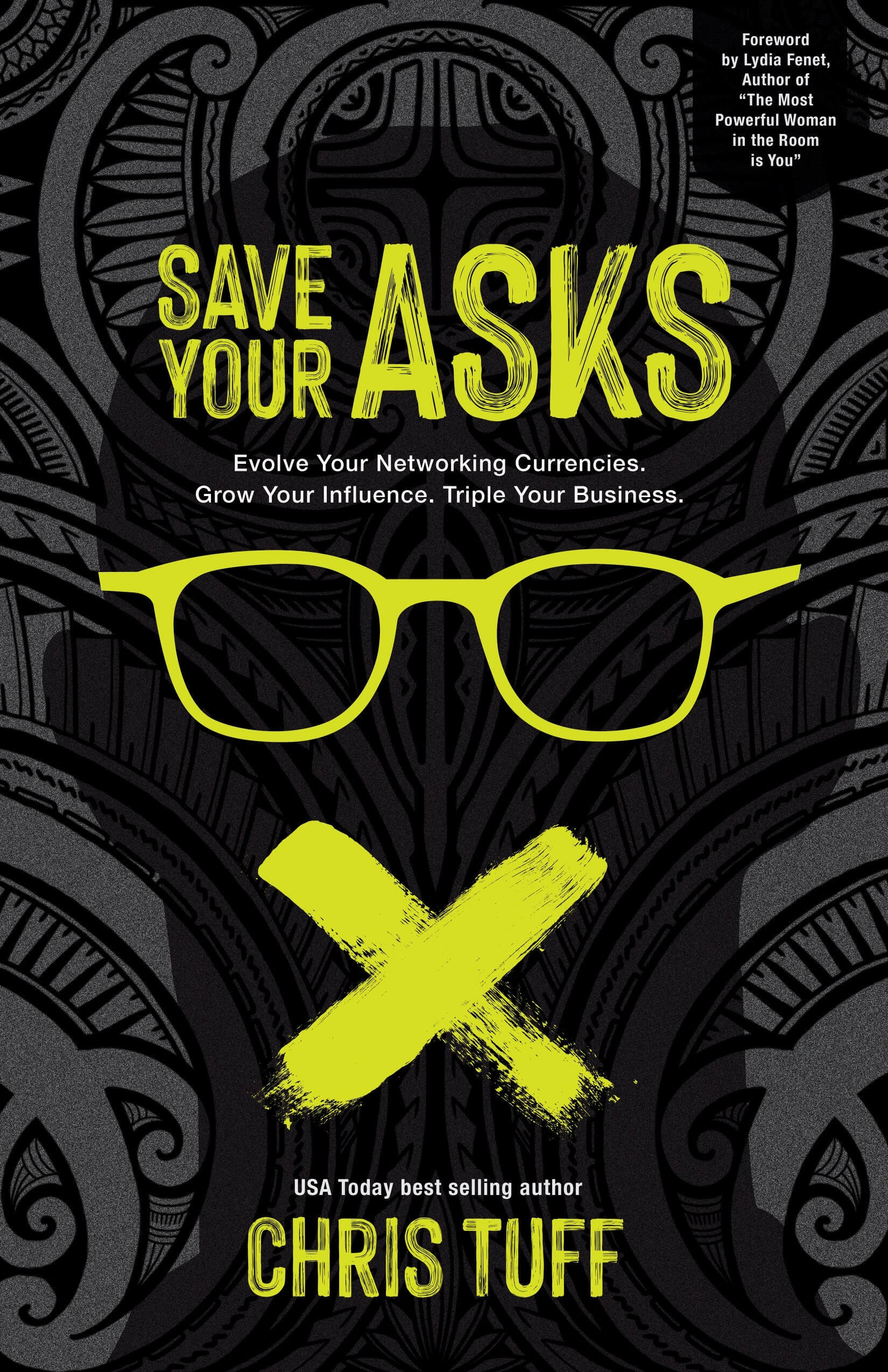
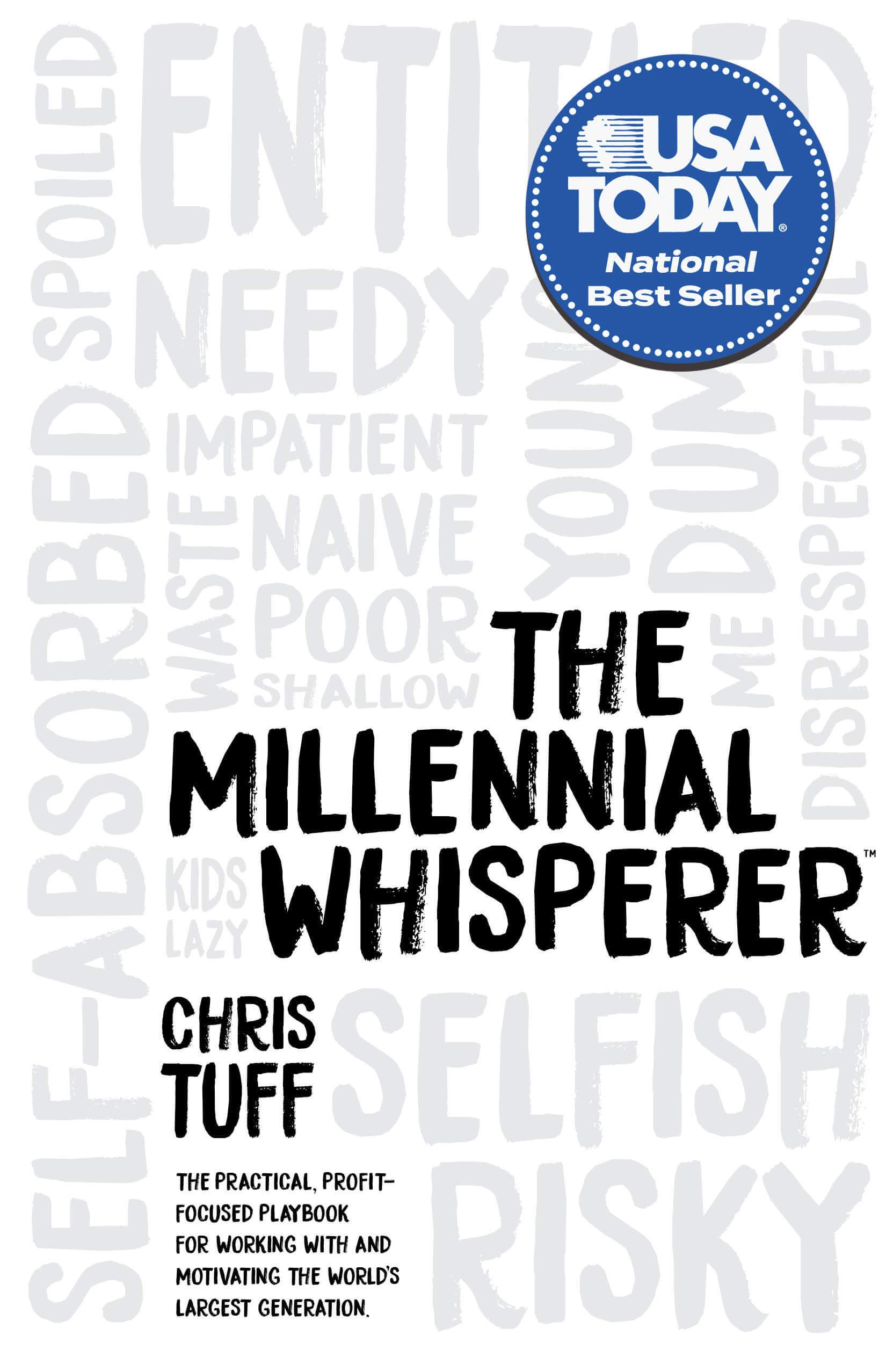
-----
Excerpts from this conversation with Chris Tuff
-----
There is nothing worse in life than complacency.
-----
So 70%, generally speaking, of your job should actually fire you up and actually put this into tactics where on the first week that someone joins my team, I will have them take their job description and figure out what's in your 70% zone of excellence and fire you up.
And then what's in your 30% zone of suck, right? Because the harsh reality, and I tell this to anyone willing to listen is that 30% of all of our jobs are gonna suck.
-----
I went into an organization that had, okay, so they have 100,000 employees, but 2500 HR leaders, all right, which will give you perspective to just how much they put in their people and culture 2500 people.
And so I dissected their data we did, we spent two months prepping for this meeting. And it all came down to just one big takeaway, which is just make it easy, everyone loves it here.
But you make it so hard for people to actually move laterally to other parts of that organization. The simplest thing you can do is allow people to make those lateral job moves, because people are not leaving, because you make it so difficult, because you end up prioritizing those, those jobs for people from the outside.
-----
Effective, authentic connection. How do you how do you know if it feels right?
So authenticity is one of the things that's so few and far between in this world and my whole platform is around authentic connection. And, you know, one of the things that I emphasize is what I call the art of the fly by.
And the art of the fly by is simply going by anyone on your team's desk and just saying, or, you know, in a hybrid workforce, texting them a video text message and say, George, that vacation you took last weekend look, epic.
Tell me more about it. Like, I saw that you hung out at the beach and tried out surfing, that's awesome. Props to you. How did it go? Right? It's just taking a little bit of that vested interest in their daily lives,
-----
Read the rest of this entry »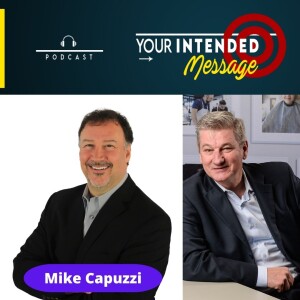
Wednesday Jan 04, 2023
Convey Your Message with a Short Book: Mike Capuzzi
Wednesday Jan 04, 2023
Wednesday Jan 04, 2023
If you have experience and expertise you can publish a book
Let's explore the magic of short books to boost your intended message
Episode 128 (Mike is based in eastern Pennsylvania)
In this conversation with Mike Capuzzi, we explore:
- Why a short book can help your business differentiate from the competition
- Why a short can boost your career and help build your team
- Where do you start when planning a book
- Why a short book is better than a long book
- How do approach your book project
- The magic of short books and free books
About Mike Capuzzi:
Mike has written and published 19 books, including two Amazon @1 Best Sellers.
He has helped over 225 business owners, entrepreneurs and corporate leaders publish their own short books.
He started his career in engineering and shifted to marketing in 1994.
Grab the offer of three free ebooks about the magic of publishing short books here https://mikecapuzzi.com/magic/
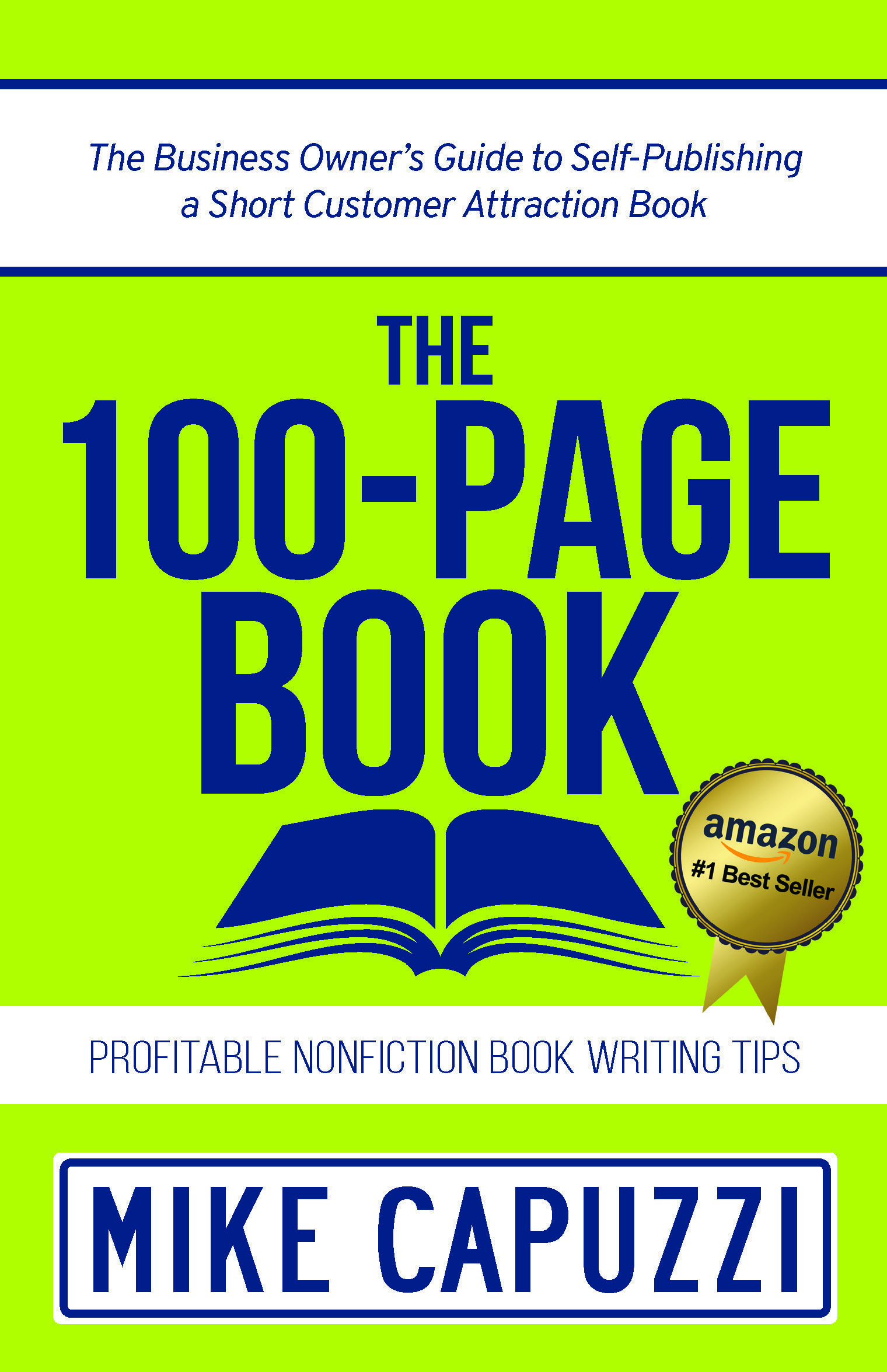
-----
Excerpts from this conversation with Mike Capuzzi
-----
The thought is always about serving the reader first
-----
I think most of us are short on time, or at least we appear to be, therefore lets appreciate it - this idea of a short book that can be read in an hour or so.
-----
About two thirds of our clients are local business owners, the local retailer, the local physician, the local chiropractor, the local insurance agent.
And that person that woman, or man who writes that book, they typically want to be what I call five mile famous, they want to be the number one chiropractor, the most sought after Dentist, the you know, insurance agent who's known for XYZ, whatever it might be.
So they're not looking to be a worldwide phenomena, they are looking to be an established authority in their community.
So for them, it's really about being different than their competition. Each one of those types of business owners has a ton of competition, most of their competition, if not all have never written a book.
So right there differentiates them. So being five mile famous for the local business owner is definitely one of the biggest benefits.
For the corporate leader, the entrepreneur, the business owner, like myself, who has a worldwide audience, we have clients all over the world, it's a bit different, it is more about establishing your authority, your expertise on a worldwide level doesn't necessarily mean speaking, though. I have spoken on stage several times over the years.
But it's really about being a credible source of podcast guest, you know, immediate interview potential prospect for media.
And it's really about using your book to establish that expertise, that authority, that credibility.
-----
Read the rest of this entry »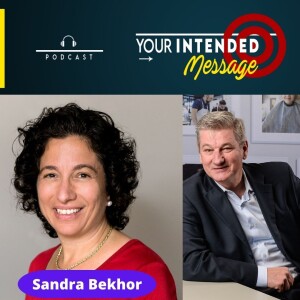
Thursday Dec 29, 2022
Professional Service Firms, Polish Your Message: Sandra Bekhor
Thursday Dec 29, 2022
Thursday Dec 29, 2022
You communicate on many channels and must get it right every time
How do you manage the emotional messages?
Episode 127 (Sandra is based in Toronto)
In this conversation with Sandra Bekhor, we explore:
- The communication challenges of professional service firms
- How to polish your customer service messaging
- How to handle angry customers
- The importance of modern thinking and adopting the scientist mindset
- Why start with scripts and how to use them
- How to make promises that you can fulfil
About Sandra Bekhor:
Sandra is the subject matter expert for the comprehensive, "Marketing for Architects" course offered by the Royal Architectural Institute of Canada.
Bekhor Management provides strategic and authentic practice development coaching for small to mid-sized professional service firms.
Learn more about her services at www.Bekhor.ca
-----
Excerpts from this conversation with Sandra Bekhor
-----
Communication isn't one thing. So just because you're great at doing your presentation, your pitch to your client, well doesn't mean that you know, how to give someone feedback.
And it doesn't mean that you know, how to handle conflict. Right. So, there are so many different aspects of communication.
-----
So you have to write a script. And that's your starting point.
And then practice it with situations that are safe. And then eventually you do learn that language that is authentic to you.
So that when you go into the real world, and and use the script, and it's just a starting point, it's not that you're going to stick to that language Exactly. But you will actually feel bolstered.
-----
So your renovation firm doing some renovations on the house. And I'm on the phone with you and say well...
I thought you were going to your people were going to show up on Monday, and it's now Tuesday afternoon and they still aren't here and I didn't get any calls.
What the hell's the matter with you people?
09:36
Are I'm going to jump in here as Samantha. Oh, George, I am so glad you told me this happened. You know, this week, things have just gotten out of control with people being sick and having family emergencies.
And I didn't realize that this happened this morning. I don't know how I will fix this for you. But just give me an hour. I'm going to check in with my team and I promise to call you back in an hour.
And then we will discuss what what we can do about this.
10:15
Okay, now I'm calm.
-----
18:22
Ah, wonderful. See? And again, you you, you calm the situation. And you didn't over promise you didn't make excuses. And you pointed out I don't know, I'll have to find it and get back to you. And sometimes that's good enough.
18:41
You know, this is such an interesting point. Most professionals are scared to say I don't know. And it's actually a secret weapon.
Just Just remember that people calm down when they see your own. I don't know, transparency.
You know, if you say I don't know, it doesn't mean your failure. It doesn't mean you're not good at your job doesn't mean that you're not smart. It means you don't know this exact moment, that specific very thing.
And you're making a promise that you will go find out for the person who does know, and you will get back to them.
You didn't lose anything in admitting that you don't know. In fact, the person calmed down, because you said that instead of pretending, pretending that you know something that you don't know, which would have made it worse.
-----
Read the rest of this entry »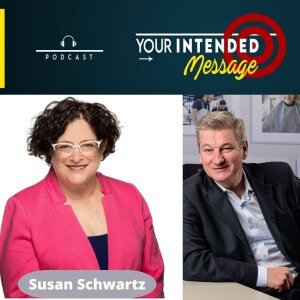
Thursday Dec 22, 2022
From Technical Expert to Leadership: Susan Schwartz
Thursday Dec 22, 2022
Thursday Dec 22, 2022
Be emotionally intelligent to lead motivated teams
When you lead, you can't be the smartest person in the room
Episode 126 (Susan is based in San Francisco)
In this conversation with Susan Schwartz, we explore:
- Making the transition from star performer to team leader
- Developing an insider code when working with different personality types
- The difference between emotional intelligence and emotionally intelligent
- When technical expertise encounters the challenge of leadership
- Building the team by delegating responsibilities and developing skills
- The leaders' dirty little secret about leading
About Susan Schwartz:
Susan is author of, Creating a Greater Whole: A Project Manager's Guide to Becoming a Leader. It's the main textbook for a Project Management Communication course at Georgetown University.
Susan developed an Expert to Excellence leadership program that uses practical, measurable Emotional Intelligence methods that help people understand intangible leadership skills and create tangible action plans
Learn more about Susan and her programs at
------
Excerpts from this conversation with Susan Schwartz
Emotional intelligence is about observations and behaviors
-----
And what happens when a technical person is promoted for their expertise. And all those years, they spent honing that knowledge. They've had a mindset, that's all about them.
What is their expertise, people come to them. They are the expert. When you get promoted to be a manager or a leadership role, all of a sudden, it's not about you.
It's about them. And that's awfully scary because your performance evaluation is not based on what you achieved. Your performance evaluation is based on what the people who work with you or for you, and perhaps even partners outside of your company.
So you have to really start paying attention to them
-----
07:00
Right. And you've got to delegate. That's perhaps the one of two most important skills because you're so busy doing their job, you can't do your job till after five o'clock.
You can't get promoted if you're busy doing your people's work, because you are so very important. And nobody else can do what you can do. That can't possibly promote you, because you're too valuable in your current role.
07:31
And I heard of a pearl of wisdom there that I want to repeat for people, if you are a leader, a team leader, a manager, if you're the only one that can do the job, then you aren't doing your job.
If you're the only one who can do what it is that your your department your team delivers, then you're really not doing it properly. Because you're not the manager, you think you're still the star.
And your success is dependent on their success. And so that comes back to you have to start being open, and realize that your success is by giving people professional development, helping them grow.
And that's the second piece of the puzzle. And this is why I love the name of your podcast is these new, expert knowledge experts transforming to leadership role, sometimes have difficulty assuring that the message they intended is received as they intended.
And because how often I've done it a lot of you sure you've done it altogether. That's not what I meant. And it still happens to me today. And it's not what I meant.
Because you you just made an assumption that they think exactly like you think. So if you're explaining it in your terms, of course they should know it. And then you end up getting frustrated doing it yourself.
And then people leave, because they're just humiliated. They think they're stupid. And then because you're not your message isn't being received as you intended. And you get frustrated because they're not smart enough or fast enough. So then you take it back and you do it yourself.
-----
Read the rest of this entry »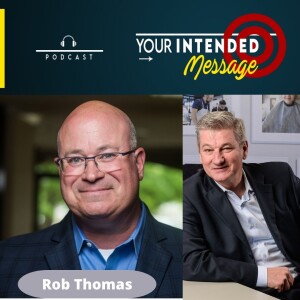
Thursday Dec 15, 2022
Build your network one conversation at a time: Rob Thomas
Thursday Dec 15, 2022
Thursday Dec 15, 2022
How to network effectively without being a pest
Identify, Maximize, Refine and Nurture your Network of Contacts
Episode 125 (Rob is based in Connecticut)
In this conversation we explore:
- How to start conversation at a networking event
- How to flip the conversation when the other person attacks in sales mode
- How to meet the most prominent people at the event
- Are business cards still relevant and what is the protocol?
- Spot the early warnings that this person is poison
- How to take the pressure off yourself at a networking event
About Rob Thomas:
Rob is the founder and president of RobThomasGLOBAL and creator of the Rob Thomas Method, (RTM). He is the author of "Who Do You NEED to Meet?"
Rob teaches and coaches business, owners, senior executives, sales professionals and entrepreneurs how to Identify, Maximize, Refine and Nurture your network of contacts.
Learn more about Rob Thomas and his programs at the website
You can find Rob Thomas on Linkedin
https://www.linkedin.com/in/robert-l-thomas/
-----
Excerpts from this conversation with Rob Thomas about Networking
03:28
Well, because I used to be that guy. So when I do my public talks out and about, I talked about how I wasn't always like this, I had to learn my lesson.
I was that sales guy that you would see it those different grip and grins, and I would come up to you, I would push my business card into your face. And I would say, hey, so let's have a conversation about how I can sell you.
Essentially, I didn't say exactly that, but close enough. I didn't ask for your card. I don't want your card. And you know, people wouldn't say that, but they'd be very nice.
And then next thing, you know, they would end up throwing out the card. And I would never keep track of them. Because of course, you know, I would never ask for theirs. And I would follow up and they didn't want to talk to me.
So it wasn't until I sat down at a diner with my dear friend Brian. And he and I were about ready to talk about one of the different sales gigs I had been a part of over the years.
And he started off by saying, Alright, Rob, so we ordered our coffee. What are you going to sell me today?
I didn't have a reply to that. I didn't know what to say. And it was from that point on that my business coach at the time.
We sat after that and he said congratulations, you've arrived. You have now figured out that it isn't always about you.
-----
Read the rest of this entry »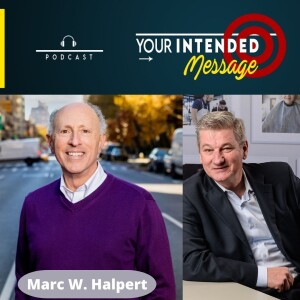
Thursday Dec 08, 2022
Linkedin is a Watercooler: Marc W, Halpert
Thursday Dec 08, 2022
Thursday Dec 08, 2022
Be visible, attention-grabbing and relevant
How to leverage Linkedin as your personal marketing platform
Episode 124 (Marc is based in New York city)
In this conversation we explore:
- When and why to connect with others
- How to invite connections
- Appreciation for the privilege of connections
- How to be amazing-er
- What to include in every Linkedin post
- Please don't try to sell me your bridge
- When to report inappropriate activity
- How to attract captivating recommendations
About Marc W. Halpert
Marc coaches individuals, trains groups, speaks, writes and comments on all thinks Linkedin.
He works to make each professional look amazing-er than their competitors in all walks and stages of professional life, with expertise in working with professional practitioners, nonprofit officers and particularly baby boomers maneuvering with the workforce.
Visit his website at https://connect2collaborate.com/
Naturally you can visit his profile on Linkedin. You can easily follow him to see his regular posts.
If you want to connect be sure to listen to this interview and use the magic word.
https://www.linkedin.com/in/marchalpert/
-----
Excerpts from this conversation with Marc W. Halpert
Linkedin is NOT a job board
-----
05:04
Mark and you caught my attention with LinkedIn is not a job board. But that was the original purpose. And both you and I, as entrepreneurs, as business owners, we know that we need to be constantly marketing and selling, but a person who has a job, they think they can stop spreading their message, stop promoting themselves. And that's a danger.
05:40
It's a big mistake, worse than a danger. Because the moment you stop promoting yourself, your company is just making you one of the rats in the maze.
All right, you're just rolling around. If you can't convince other people in your company, maybe in other departments, or you want to rise to some other position about the value you bring to the company by how you project the company, marketing strategy, the marketing message, then you're just a worker bee.
Who wants to be a worker bee?
If you are not consistently adding material about what you accomplish on behalf of the company. You're not differentiating yourself within the company. You're not going to be in that company for you all your life your whole life.
-----
Find the amazing in every person
-----
But it makes it a privilege to connect to somebody. So I like to use the metaphor, someone walks up to your front door of your house, knock knock.
You say who's there? This, they'll say, Hi, I'm here knocking at your door. So hi, I'm here. with you on LinkedIn. What do you want? Why should I let you into my metaphorical house? Where my metaphorical family of connections that I nurture and take very good care of live?
Why? If you can't tell me at Knock, number one, that's not a knock number two.
Number three, sorry, I asked you twice.
I just don't. But sometimes I get people say, Well, I offered to connect with you. I didn't know you could do that. And I'm a good friend of so and so. And they said, Well, why don't you tell me that? Why didn't you sell save yourself and me the effort of volley balling this whole thing around? Oh, I didn't think about that. Well, why?
Then I'm beginning to make my own mental image of do I really want to be involved with this knucklehead? I mean, really? And who would I ever refer this person to if they don't do their homework and see, so if you read my LinkedIn profile, anybody listening?
Anybody listening, you read my LinkedIn profile, and you want to connect with me, there is this magic secret word in my profile that you have to include in your LinkedIn connection request to me, then I'll go, you're worth considering.
Because you took the time to read and you saw what I said.
-----
Read the rest of this entry »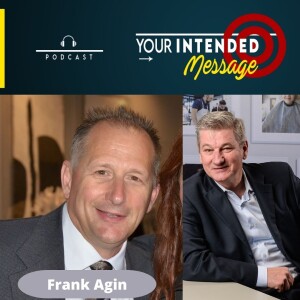
Thursday Dec 01, 2022
Networking in the Room: Frank Agin
Thursday Dec 01, 2022
Thursday Dec 01, 2022
Build your relationships, build your network
How to show up in the room for networking
Episode 123 (Frank is based in Ohio)
In this conversation we explore:
- How to prepare your mindset for networking events
- How to start the conversation and move it forward
- Why it's more than harvesting leads
- Helping others via referrals, introductions and encouragement
- The role of karma, faith and trust
- Your secret weapon is the Cloak of Invincibility
- How to be more memorable
About Frank Agin
Frank is president of AmSpirit Business Connections and organization that empowers entrepreneurs, sales representatives and professionals to become successful through networking.
He is host of the Network Rx Podcast a weekly short-form podcast with insights and interviews related to better business relationships.

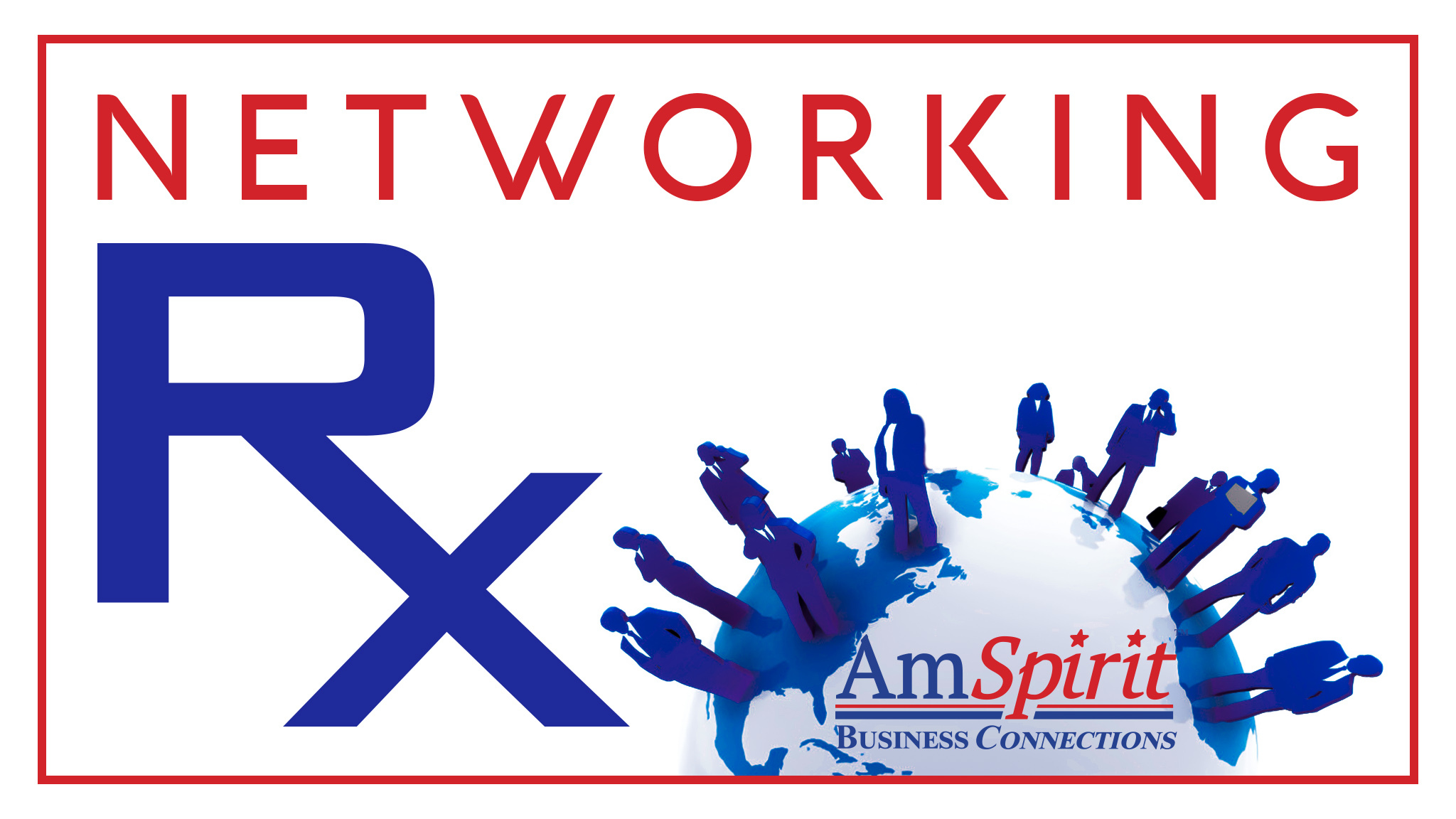
-----
Excerpts from this conversation with Frank Agin
And I define networking as two or more people working towards their mutual benefit.
-----
06:31
You know, it's, yeah, there are both extremes. And I had a psychologist on my podcast several years ago. And he kind of dissected, he said, there are really three people in the room, he said, There's the wallflower, there's the person who is braggadocious.
And then, there's the person who's trying to make the quick sale. And that really, the fourth person in the room is the person doing it, right.
And he said, the thing that all of them have in common, all four of them have in common, is they're all insecure.
The person who feels like they need to always be talking. They're insecure, I gotta get my message out, the person who needs to make the sale, they're insecure, they just need to close the deal. The person who's the wallflower feels insecure.
But the person who does it right is insecure as well, but just has learned how to deal with that insecurity.
-----
08:58
Nobody's going to reject that person who's there to help other people. And so all of a sudden, you kind of transform yourself from, I don't need to be the wallflower I'm here to help other people. And the reason the person's the wallflowers they're afraid that they're going to be rejected.
And so if they just kind of stepped into, I want to hear what this other person has to say, because there might be a way I might have information that will help them, I might have an introduction that will help them I might have, you know, somebody to refer them to depending upon the situation.
-----
Be very interested in them. And so you sort of get them talking about the things that they you know that they're a value to them.
-----
Read the rest of this entry »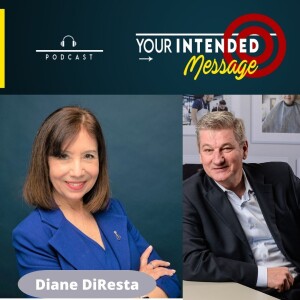
Thursday Nov 24, 2022
Boost your Presence with Gravitas: Diane DiResta
Thursday Nov 24, 2022
Thursday Nov 24, 2022
You don't need to be an executive to have presence
Check your gravitas, communication and appearance
Episode 122 (Diane is based in New York)
In this conversation we explore:
- The contributing components of presence
- What are the elements of gravitas, communication and appearance?
- The power of confidence and decisiveness
- How to align your communication
- How to establish your grounding position before you speak
- How to wield the power of the pause to your overwhelming advantage
- How to show up (and mistakes) for virtual meetings
About Diane DiResta
A speech pathologist, professional speaker, executive speech coach and past president of National Speakers Association NYC. She has spoken on 4 continents and is the author of Amazon category bestseller, Knockout Presentations.
Learn more about Diane at her website https://www.diresta.com/
-----
Excerpts from this conversation with Diane DiResta
Gravitas is the biggest component and it makes up 67% of the message. Or the definition communication is 28%. And your appearance is 5%. of executive presence.
-----
They're not grounded. So I give people actual practical tools that they can use. So here's one that I'll share with your listeners.
Whether you are on a screen or in a in person meeting, the first thing you want to do is establish a grounding position. Why? Because a lot of times in the beginning, we're fidgeting we have energy, we don't know what to do with it.
So here's what you can do, put both feet flat on the floor, lean in at a 15 degree angle with both hands on the table. I don't know if you can see this.
And what this does is it creates a presence and a grounding. So even if your heart is pounding out of your chest, we don't see it, you look confident.
So then the audience responds to you as if you are confident and then you start to feel more confident. You start to feel their respect and attention. So it starts with little things.
But what I've discovered is it's the little things that make the greatest impact. So nobody listening today has to do a big total makeover, but little tweaks along the way will get you to where you want to go.
-----
So when you talk about appearance, looking polished, and you're being authentic part of that your background when you're on screen.
So how are you showing up, and I've had people with beds in the background, not good.
So you can have a branding background, a background, like what I have, or you can use your home as long as it's professional looking, or an office. But all of these little things add up to an impression, a brand and executive presence.
-----
22:58
So energy is good. Enthusiasm is good, absolutely. But you can still be really enthusiastic, and come to a pause. So it's like a stop sign. Don't go past the stop sign, come to a complete stop, and then move. Let people have time to process.
-----
Read the rest of this entry »


